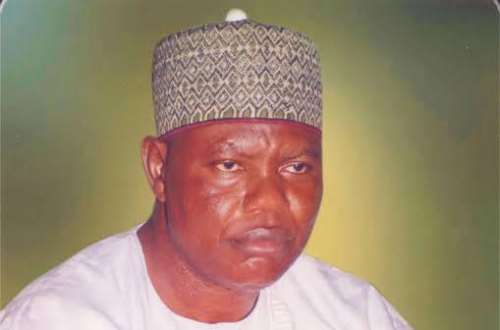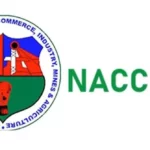Dr Iyela Ajayi is the Executive Secretary of the National Senior Secondary Education Commission (NSSSEC), who recently received an award as Best Executive Secretary. In this interview with journalists in Abuja, he speaks on how far the commission has gone in achieving its mandate as well as plans to tackle challenges of senior secondary education in Nigeria.
Your commission was established to bridge the gap in senior secondary education, how far have you gone in achieving your mandate?
We have gone very far within one year of my appointment, we have done marvelously well. I don’t want to judge myself, but I think I will leave that to you, our watchdog.
On our mandate to prescribe and enforce minimum standards, we have prepared a document of minimum standards. That document actually was validated by all the stakeholders, commissioners of education, NGOs, development partners and Joint Consultative Committee on Education and the minister approved it.
The last bus stop was at the National Council of Education, as the highest policy-making body for education, approved that document on the minimum standards. I’m happy to inform you that the document right now is with the publishers. And after the Christmas holidays, we are going to organise a stakeholders meeting to launch the document and also give further instructions.
What are those instructions?
It is one thing to say you have a policy, it is another thing for that policy to be implemented.
The law says, enforce, prescribe and enforce the minimum standards. So, we are getting to the point of enforcement. We will bring State commissioners for education to Abuja where they will be given these documents and asked to go and implement the content of the documents.
In the minimum standards, you have a prescription on the number of teachers every school should have and what should be the teacher-student ratio You know, of course, in the National Council of Education, it is 1 to 40 for secondary schools. What should be the qualification of teachers, even the principals, the head teachers and those who are holding non-teaching appointments, what should be their qualification?
Others are the size of the classroom, the safety precautions, because we also care about the safety of our children. The point I’m making is that the minimum standards have reached the point of final production.
Your mandates extend to data collection and capacity building, can you speak on that?
Now, in the area of data collection, I’m happy to inform you that, to the best of my knowledge, this commission has the most current data on all aspects. This commission has the latest data on all aspects of senior secondary education. Now, in the area of capacity building, we have organised capacity building for teachers in the six geopolitical zones, but with our focus on English and Mathematics. Because you know that English and mathematics are the core subjects, if you fail English and Mathematics, you cannot progress educationally.
And English is the medium of instruction in schools and it is our lingua franca and for Mathematics, every one of us can claim to be mathematicians because we use mathematics every day.
Now, one of the mandates is to formulate policies on Senior Secondary Education, but with the approval of the federal government. We have done that. I’m happy to inform you that we have produced a document called the National Policy on Senior Secondary Education. That is the first of its kind in this country. We have not only produced that document but we have the implementation guidelines.
It was approved by the National Council on Education, and it has been published and has been circulated among all the states of this country. Some of the states have even started implementing the content of that document. Then, of course, we have also organised advocacy visits to support the implementation of the Safe Schools Initiative.
Have you commenced interventions in senior secondary schools, and are there challenges?
You know, this commission is to operate the same way as UBEC. It is to be giving 2 per cent of the consolidated revenue fund for interventions but the truth of the matter is that we have not received a kobo now. But of course, this year, something happened, the National Assembly rightly observed that amongst all the education agencies, it is only this commission that is not receiving reasonable funding from the government for intervention. So what they did was that they said, we are going to put in your budget so that you will be able to intervene in about 50 secondary schools in this country.
And in those schools, we are going to upgrade the facilities, provide lecture halls, laboratories, e-libraries, and complete upgrading of the schools, 50 of them. As I speak to you, work is ongoing and by the grace of God, by the month of February, we will go for assessment.
Yes, the government has not released the 2 per cent, but I don’t want to say that we are doing badly. But if the National Assembly has recognised that we are not adequately funded, and so it is prepared to make provision for us to do our intervention in the 50 schools.
If you visit many of the schools, they don’t even have laboratories, and they offer science subjects. Some have what they call a multipurpose lab. In other words, you have only one room for physics, chemistry and biology, everything in that room. And some of them look like poultry.
What is the commission’s plan for next year?
One of the main reasons the educational systems of America, Europe have well developed is because they have been able to integrate technology into teaching and learning. The truth is that many of our teachers, the majority, are still comfortable with the traditional method of teaching. They cannot even operate the computer, that is a fact.
Next year, we want to begin to correct that by ensuring that teachers are exposed to digital learning training. And we are going to make it compulsory. We are going to make a recommendation to the minister that this training should not only be compulsory, that there should be certificates given to them. And the certificates given to them should be part of the documents they should produce for their promotion.
When you do that, I can assure you that in the next five years, from our own estimate, at least half of our teachers in Senior secondary education will have been able to acquire that training in digital literacy, artificial intelligence, robotics, and so on and so forth.
We are also planning next year to revive the concept of school farms in the school gardens. Students are supposed to visit those farms on particular days to participate in farming activities. We want to revive that culture, let our children begin to appreciate farming as an occupation that is honourable. And even then, you can imagine if thousands of our schools are growing their own vegetables, and food, it will have implications for the price of food even in the larger society. So, this is part of what we are planning to do and many others.
What are you doing in terms of learning outcomes in senior secondary level?
We have embarked on what we call monitoring of learning achievement, because we want to know the extent to which our children are achieving in the classroom. We just organised one recently, and it involves the SS1 and SS2 students. We want to know their performance in English and mathematics.
If the performance is low, of course, we are bound to ask questions. Why is it low? Is it because the teachers are not qualified? Is it because the facilities are not there? Is it because of the teaching methods? And so on and so forth. After asking these questions, I will know why the learners are not achieving.
We will now begin to look at how to resolve the problems. We have done that already. Of course, we have also embarked on the monitoring and evaluation of schools, that one is ongoing and more holistic and others initiatives too.
You were recently awarded the best executive secretary, how do you feel about that and why do you think you got the award?
You see, I am somebody who likes to deliver on any assignment I am giving. The first thing that comes to my mind is, what legacy am I going to leave behind, that is my number one interest. What do I want to be remembered for when I leave here or when I leave this organisation?
This is not my first public appointment, at FCE Katsina, I rose from the bottom and became deputy provost and later became Provost of the College. Then, from there I became substantive provost of FCE Okene for eight years.
I have received countless awards and it is because I always want to leave a legacy and that is what has been my guiding principle here.

 Join Daily Trust WhatsApp Community For Quick Access To News and Happenings Around You.
Join Daily Trust WhatsApp Community For Quick Access To News and Happenings Around You.


